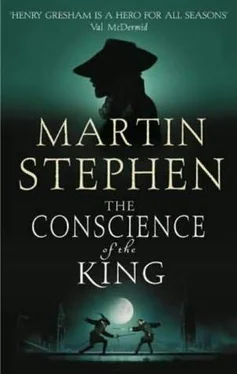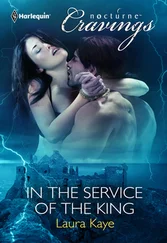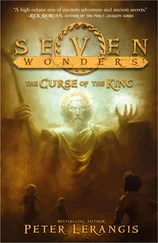Martin Stephen - The Conscience of the King
Здесь есть возможность читать онлайн «Martin Stephen - The Conscience of the King» весь текст электронной книги совершенно бесплатно (целиком полную версию без сокращений). В некоторых случаях можно слушать аудио, скачать через торрент в формате fb2 и присутствует краткое содержание. Жанр: Исторический детектив, на английском языке. Описание произведения, (предисловие) а так же отзывы посетителей доступны на портале библиотеки ЛибКат.
- Название:The Conscience of the King
- Автор:
- Жанр:
- Год:неизвестен
- ISBN:нет данных
- Рейтинг книги:4 / 5. Голосов: 1
-
Избранное:Добавить в избранное
- Отзывы:
-
Ваша оценка:
- 80
- 1
- 2
- 3
- 4
- 5
The Conscience of the King: краткое содержание, описание и аннотация
Предлагаем к чтению аннотацию, описание, краткое содержание или предисловие (зависит от того, что написал сам автор книги «The Conscience of the King»). Если вы не нашли необходимую информацию о книге — напишите в комментариях, мы постараемся отыскать её.
The Conscience of the King — читать онлайн бесплатно полную книгу (весь текст) целиком
Ниже представлен текст книги, разбитый по страницам. Система сохранения места последней прочитанной страницы, позволяет с удобством читать онлайн бесплатно книгу «The Conscience of the King», без необходимости каждый раз заново искать на чём Вы остановились. Поставьте закладку, и сможете в любой момент перейти на страницу, на которой закончили чтение.
Интервал:
Закладка:
'They were heady days, weren't they?' said Gresham, remembering the wild, mad and bad 1590s when everything had seemed possible.
'Heady indeed. We all thought we were destined to be the Queen's chief minister. We were all conspirators, vowed to secrecy in case our various political ambitions were threatened by involvement with the theatre. Yet in our heart of hearts, I believe we all looked forward to a moment when we would reveal our authorship, when we could bask in the notoriety and fame like adolescents allowed to walk up the aisle at their own funeral.'
'And Cecil spoiled it?' asked Gresham.
'How did you guess?' answered Bacon. 'He found out about the group, as he'd found out about Marlowe. Very gently, he started to blackmail us.'
'How so?' asked Gresham, intrigued. 'He'd no need of money, and while those you mention had power and wealth enough — you, Oxford and the rest — you weren't the prime shakers and movers of your day, with respect.'
'No, but we were all public figures, and Cecil loved to have hold over anyone in public life, or anyone who might become important.'
How true, Gresham thought. He had battled for years against the secret knowledge Cecil held on him.
'But it was more than that, if I may speak?' replied Andrewes. 'I was one of those early recruits, though only for one play initially, before good sense took hold of me again, and before I succumbed once more in dotage. In the last three years or so of the old century, Cecil began to build his true power base. There was no direct heir to Elizabeth, no issue from her loins. A king from Scotland, from our own nobility, from Spain or even from France — all these had huge potential for civil unrest, for disobedience, for civil war.
So Cecil began to force members of the group to write plays that would reinforce the absolute authority of kings.'
'Which created one or two rather lovely problems in its own right,' said Bacon. 'Henry IV was meant to show the triumph of monarchy over the Lord of Misrule. But the great unwashed decided they preferred the Lord of Misrule in the form of Falstaff! Cecil was livid!'
Gresham thought briefly. 'I can see why you, my lord Bishop, a bright, intelligent man with a skill in and love of words, and a need to speak to an audience as you do so well in your sermons — I can see why you were tempted to experiment. But why in God's name would the King of England want to write a play?'
Bacon answered. 'Because he believes himself a writer and an intellectual, and because he cannot bear to think that he's not more skilful than others. And because Robert Carr suggested it to him, before the King or Carr knew about the convenient service Shakespeare provided for others. Andrewes here picked up wind of it and panicked, inasmuch as my lord Bishop knows the meaning of the word. He persuaded James out of publishing a play under his own name and told him of the service Shakespeare offered.'
'In doing so, I had to reveal my own involvement in the whole business.'
'James's reaction?'
'Initially amusement, rising to apoplectic anger. He is more proud of his Bible, believing that it will be his spiritual monument to future generations, than of anything else except his hunting skills. He persuaded himself that if it were known I had written for the actors it would devalue the whole work. Indeed, the King took steps to reduce my involvement dramatically as far as the public awareness went. I was — I am — the final editor of the King James Bible. The credit will go to another, for all history in probability.'
'And it lost you the Archbishopric of Canterbury?' asked Gresham.
'Indeed,' said Andrewes. 'A fair reward for youthful vanity. The King made it clear that he viewed the existence of this play as a sword of Damocles hanging over me were I to gain Canterbury. Or was he told so by Carr and Overbury? I don't know which.'
'And Marlowe?'
'He came to the King — via Coke — wounded. He said he knew the whereabouts of the manuscripts in the King's hand and in mine. In exchange for money and a free passage back to Europe, he guaranteed to provide them. James threatened to torture him. Marlowe laughed in his face. Asked if the King knew what pain he was in already. Laughed and said how much he would welcome death. Threatened, 1 believe, that if he, Marlowe, were to die then the manuscripts would be released anyway.' It was Andrewes speaking. Interesting to note, thought Gresham, that it was Andrewes who still had the ear of the King, not Bacon.
'And the King agreed?'
'Yes,' said Andrewes, 'but for the wrong reasons. He has a morbid fear of death, as you know. He fled to the countryside when Prince Henry was dying. It's likely he won't be at the funeral. In some way Marlowe made himself a symbol of death for James. A symbol of his own death.'
'So where do we stand now?' said Gresham.
'Marlowe's gone off, God knows where,' said Bacon. 'The man may be mad, but his capacity to vanish at will is exceptionally sane. Shakespeare hasn't been seen since Wade grabbed you and your wife from his apartments. The letters between James and Carr still haven't been found…' The eyes of both Bacon and Andrewes swivelled round to focus on Gresham. He met their combined gaze, unflinching, that infuriating half-smile on his lips. 'A group of people could be exposed at any minute as having written plays claimed by someone else. Some of those who wrote Shakespeare's plays want it kept secret, and will be seriously damaged if the truth comes out. There are others who want nothing more than for their genius to be recognised. It is, to be frank, a total mess…'
'And,' said Gresham, 'the rumours are already starting that Prince Henry was poisoned, a point to which I have to make an answer to the King.'
That brought silence.
'Was he poisoned?' Gresham looked straight at Bacon.
‘I don't know,' he replied simply, after a few moments. 'But I doubt it. The only possible reason would be if Overbury felt Henry was threatening Carr's position, and hence Overbury's power. Yet there was no sign of it. James didn't listen to Henry. He thought his son was a prig, and Henry considered his father decadent.'
'So who are the coterie who wrote Shakespeare's plays for him?' asked Gresham.
Bacon and Andrewes exchanged glances.
'Do you really want to know?' said Bacon. 'You may find yourself hurt by the knowledge, mentally as well as physically.'
With a sinking feeling in his stomach, Gresham felt he could guess what was coming. 'Tell me,' he said. ‘I need the truth.'
'Well,' said Bacon, 'myself and Andrewes here, obviously. The King. The Earls of Oxford, Rutland and Derby, in differing measures — and remember that sometimes two or even three of us worked on the same idea. Marlowe. And the Dowager Countess of Pembroke, who, by the way, is ruffling the most feathers by insisting that her authorship of two plays — As You Like It and Twelfth Night — is acknowledged.'
'Her son, the present Pembroke, knows the actors. Correction. He's besotted by them. He knows the truth and he hates his mother. He's keeping her silent by threatening to take all her money away from her. He tells Shakespeare it's to help him, but it isn't. It's because he can't bear the thought of his mother being seen as good at anything,' said Andrewes, with feeling. Pembrokeiana, as she was known, had made a favourite of Andrewes, a situation from which few men emerged alive. 'And there is one more,' said Bacon.
Gresham knew what was coming. He had felt it in his bones. 'Sir Walter Raleigh,' he said flatly. 'Yes,' said Bacon.
His saviour and his hero. The man Gresham had named his eldest son after. The man he had visited, supported and sustained all these years past while he was imprisoned in that very same Tower Gresham had so recently left. The man who had seen fit to keep this a secret from his younger friend. The man who had chosen to do so despite knowing that Gresham's life was at risk from the moment he became entangled in the thorns and briars of these damned plays and their authorship.
Читать дальшеИнтервал:
Закладка:
Похожие книги на «The Conscience of the King»
Представляем Вашему вниманию похожие книги на «The Conscience of the King» списком для выбора. Мы отобрали схожую по названию и смыслу литературу в надежде предоставить читателям больше вариантов отыскать новые, интересные, ещё непрочитанные произведения.
Обсуждение, отзывы о книге «The Conscience of the King» и просто собственные мнения читателей. Оставьте ваши комментарии, напишите, что Вы думаете о произведении, его смысле или главных героях. Укажите что конкретно понравилось, а что нет, и почему Вы так считаете.












